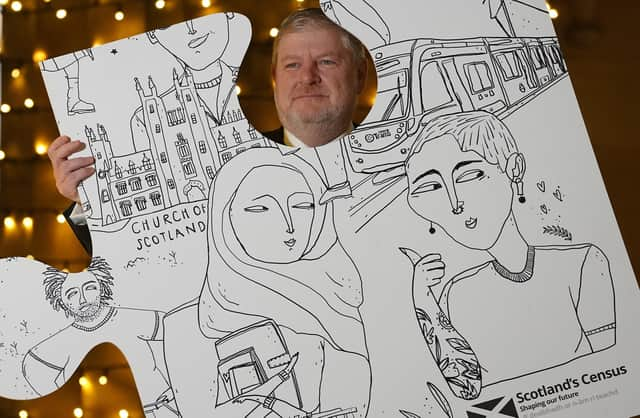Scotland's Census 2022: Why the SNP has presided over the first botched census in 200 years – Brian Wilson


Yet for the first time, uniquely to Scotland, non-participation threatens to devalue the whole exercise. More than a month after the official Census Day, almost a quarter of the population has not made a return, rising to a third in Glasgow. Another £10 million is to be thrown at the problem, possibly found in a St Andrew’s House cupboard normally reserved for lost documents.
The whole point of a Census Day is to provide a snapshot of society on a specific date – not spread over three months. It had worked in Scotland for 200 years until the SNP got their hands on it. Then everything had to be different, just to remind us that this is “Scotland’s Census” rather than a boring old UK one which achieved near total participation.
Advertisement
Hide AdAdvertisement
Hide AdThere was no need to delay the Census from last year, when it was successfully carried out in England and Wales with an uptake of over 97 per cent. Neither was there a need for it to be outsourced to a recruitment agency based in the West Midlands. Nor was there a need to place such bias on online participation, as opposed to traditional – and highly effective – human contact.
Like everything our devolved government touches, “Scotland’s Census” was built on difference. Different date, different branding, different methodology, different questions – all of which detracted from the unifying sense of purpose which was an element essential to the Census. Unsurprisingly, doing it differently meant doing it worse, not least because awareness was diluted by a Scotland-only exercise.
I have youthful memories of my father, who worked in local government, acting as a Census enumerator, and the meticulous commitment he devoted to that task, just like thousands of others around the UK. Deliver to every home… visit and re-visit to help those who needed it with completion of the form… collect on the appointed day. Hey presto, it worked. So get rid of it.
There was a real sense of national purpose about the Census and hence a civic willingness to participate. It was not just about numbers. It also asked questions about housing, sanitation, health, employment… the building blocks of information on which social ills could be identified and addressed. There was a perception of each Census acting as a milestone in shaping a better society.
The main reasons for such an unprecedented abstention rate is probably disregard for the fact that a substantial proportion of the population either do not have access to, or are uncomfortable using, online technology. When this emanates from commercial companies, it is inconsiderate and driven by cost-cutting. When applied by government to something as important at the Census, it is undesirable and unnecessary.
In making his statement which admitted the extent of failure, Scottish Cabinet minister Angus Robertson repeatedly referred to the “incredible importance” of the Census. What a pity then that so little consideration was given to the incredible importance of making it as straightforward as possible for everyone – particularly those least likely to complete an online version – to fill it in. This should have been the primary consideration rather than an afterthought reflected in providing a telephone number to call for a paper form.
“Scotland’s Census” still asks important questions but also includes ones which have no legitimate place. Perhaps another deterrent? Asking which ethnic group “best describes” how people self-identify, from a closed list, is one example. Most of us are comfortable with multiple identities until someone makes us choose. Why should that invidious choice be a legal prerequisite for completing a Census form? What social building-block does it provide?
Making such a mess of running the Census may not be the stuff of headlines but it is another reminder that, just occasionally, unity of purpose across the state we live in should take precedence over the unproductive search for identity-based difference.
Comments
Want to join the conversation? Please or to comment on this article.

